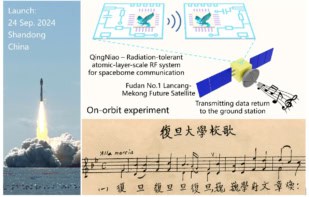At the end of September, Fermilab’s famous particle collider the Tevatron will be retired after a dazzling career spanning four decades. In this interview with Physics World, Chris Quigg, an eminent researcher who has been at Fermilab since the 1970s, reflects on the decision and its implications for the future of particle physics in the US
Quigg discusses the last-ditch efforts to extend the lifetime of the Tevatron by three years and why that appeal was ultimately rejected by the US Department of Energy. “The US government feels under great fiscal pressure,” he says. “I think much of the perception is vacuum-polarized and self-generated.” Quigg concedes, however, that the good performance of the LHC in the first few months of this year has made it easier for him to accept that the baton is quickly passing to CERN.
But Quigg believes that the LHC and future accelerators will benefit greatly from the legacy of the Tevatron, particularly its ability to make highly precise measurements. “There are areas in which the Tevatron has a long lead, not just in the number of events that it has recorded but in the development of expertise in making very difficult measurements,” he says.
Of all the Tevatron’s achievements, Quigg singles out the discovery of the top quark in 1995 as the jewel in the crown. “What the researchers did was almost impossible,” he says, referring to the relatively small number of data and the way that the different experimental groups skilfully used a silicon vertex detector for the first time.
Looking to the future, Quigg would like to see the US develop a closer relationship with CERN. He believes this will come, in part, by continued involvement in various experiments, including work on the LHC’s two general detectors – ATLAS and CMS. While in the longer term, Quigg would like the US to carry out its own extensive R&D programme to feed into the design of a next-generation accelerator such as the proposed International Linear collider.
If you enjoyed this interview, you may also be interested to hear the views of Harvard theorist Lisa Randall in an interview from March. Randall was highly vocal in her support for the extension of the Tevatron’s lifetime, but she is very excited about the wealth of results – and new physics – that the LHC promises to deliver.



